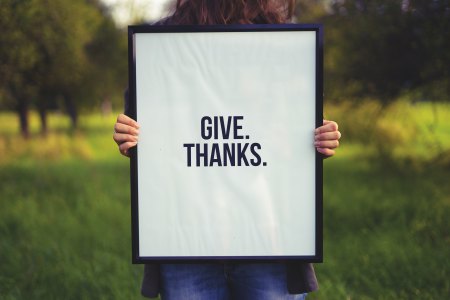Making Corporate Social Responsibility part of your corporate DNA: why, what, how? Supporting charity projects has become common practice for a lot of companies. Yet, the question still remains: what is the best way to do it, how can you make it sustainable? And above all: how to make it part of your your CSR strategy and your DNA? Is it a privilege only big corporations can afford? We have noticed among a majority of our clients that they haven’t found the answer to these questions yet. Most of them struggle to define their role in Corporate Social Responsibility.
We believe (and have seen more than once) that the discussion should be centered on ENGAGEMENT and on PURPOSE, more that it should be about funds. CSR must be a part of the corporate strategy and so much more than an obligate piece of text in the company’s annual report. CSR is the perfect way to bring people together around a purpose that is much bigger than themselves. And when it’s about Engagement, that’s when our core business comes into play.
When you manage to gather people around a higher goal, you will get an immediate effect on people engagement. The benefits for the company are obvious: your employees believe more in the organisation, it makes them happier, customers are more inclined to buy from you and we all make the world a better place. Admittedly: it requires a lot more energy than doing nothing or just donating a money.
Years ago, we helped launching Special Olympics European Games in Belgium. It turned out to be a great way to learn more about charities. What I have experienced at Special Olympics, has changed me as a human being. A pure grassroots organisation, driven by a visionary leader, where the athlete is the center and where the most fantastic volunteers (coming from a lot of different companies) help these athletes to make their dreams come true. One of our main targets was to find companies that believed in Special Olympics and wanted to connect through real life experiences. The aim was to set up a two way collaboration, where the company helped Special Olympics to professionalize in their daily operations, or find an employment for the athlete, organize meet and greet sporting sessions between athletes and employees, etc. Next to engaging employees as volunteers in the organisation. Many years later, I’m proud to have Zehra Sayin, CEO of Special Olympics Belgium, as one of the members of our Board of Advice.
Professor Wayne Visser wrote the bestseller “The Age of Responsibility: CSR 2.0 and the new DNA of Business” in 2011 already. Visser claims that the classic CSR approach isn’t solid enough to improve the world. He suggests a different approach through CSR 2.0. CSR 2.0 is about building business models that lead to a better world.
Making Corporate Social Responsibility part of your corporate DNA. As a small organisation we also try to make it part of our way of doing business:
- Herculean was founded as a cooperative structure. We were inspired in 2012 by Muhammad Yunus and the Verenigde Nations who had proclaimed it the “Year of the COOP” . It would have veeb easier to create a traditional limited company, but we believed that a cooperative reflected our rationale and DNA. We still have a long way to go, but we were very happy to see quite a few fans become part of our company in 2017 when we launched Equity Crowdfunding.
- When we organised the Hercules Trophy in South Africa, we decided to dedicate the event to one of the persons who inspired us most, Nelson Mandela. More tha anyone else, he used the power of sport to unite his people. The South African Olympic team visited our event before they left for the airport to the Olympic Games in London. The athletes handed out sporting material to slum schools and wrote notes of dedication to inspire children to become the best version of themselves. It was one of the most magical moments for our team ever.
- This year again, we supported the Special Olympics organisation by helping them organize the Unified Games in Abu Dhabi. By providing brains, people and logistics instead of donating money.
- More recently, we have started our own CSR business model via the Pink Ladies Games. We’re currently looking for other companies besides C&A, Suzuki and Herculean that want to support two of the Sustainable Development Goals of the United Nations:
- SDG3: Ensuring healthy lives and promote wellbeing for all at all ages. We are supporting the VUB Yamina Krossa Foundation and are inviting hundreds of ladies in Brussels to support scientific cancer research.
- SDG5: Achieve gender equality and empower all women and girls.
- A few months ago, we organized the very first Pride Games during Antwerp Pride. An example of a Herculean fan who launches a great idea and gets the support of the entire company to bring together a unique community. An initiative that looks promising indeed. Talking about gender equality…
So, yes, CSR should be an essential part of your engagement programme and it’s not always simple to set this up and make it work. We have managed to make it part of our culture and help organisations to do the same, both on a strategic as on an operational level. Do not hesitate to contact us if you require any help.
